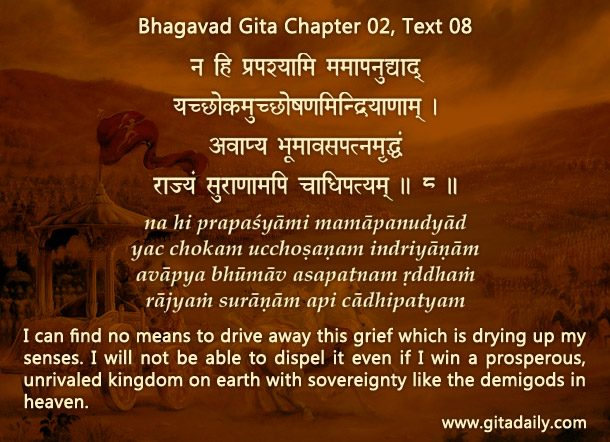Suppose our house is filled with junk. If we buy some good furniture, we won’t have any space to keep it till we get rid of the junk.
Similarly, our heart is presently filled with many worldly attachments. When we practice bhakti-yoga, thereby inviting God to manifest in our heart, we can’t have him there till we let go of our attachments. That is, during our life’s routine course, we don’t feel the need for God because we feel that we are sheltered by our material possessions and relations.
But when upheavals steal the things that shelter us, we feel agitated – we may pray to Krishna for help. If we still end up losing those things, we may feel let down by him. Gita wisdom helps us see that he is still helping us – he is working on us inside. He is emptying our heart of our worldly attachments so that he himself can manifest there, thereby enriching us spiritually.
At the start of the Bhagavad-gita, Arjuna felt he was about to lose everything that made his life worth living. He said that even if he secured the ultimate material gain – unrivaled sovereignty on the earth or even kingship of heaven – still, that wouldn’t relieve him of the grief that was drying up his very being (02.08). But when the Gita helped him to focus on the Lord of all wealth, Krishna, and become devoted to him, he regained his composure (18.73).
Similarly, amidst problems, if instead of seeking specific solutions, we can focus on the generic purpose of all problems and of this problematic material world itself: the redirection of our heart towards Krishna. When we thus focus on him through bhakti-yoga practice, we realize his inner presence – and that is a gain greater than even the greatest worldly loss.
Think it over:
- How does God help us amidst losses?
- How did the Gita guide Arjuna towards the ultimate gain?
- Amidst losses, how can we redirect our vision?
To know more about this verse, please click on the image
Explanation of article:
Podcast:


Leave A Comment